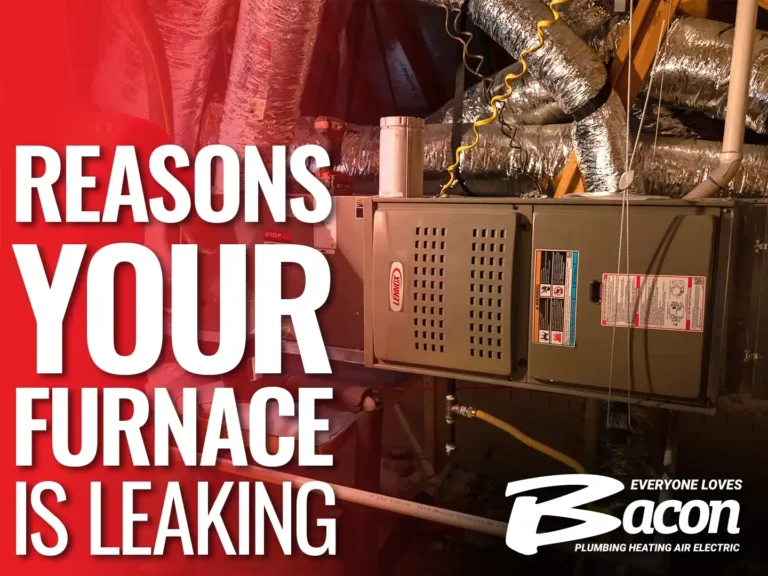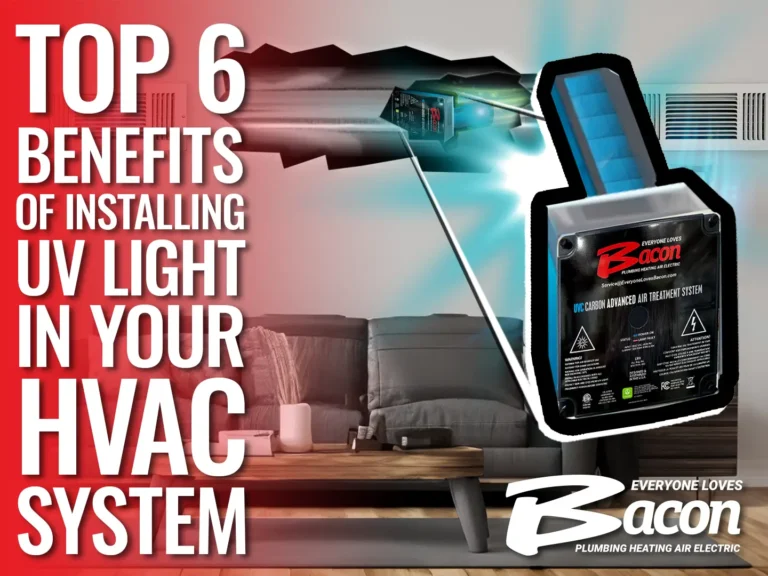When your Rockwall, TX home has poor ventilation, this can lead to decreased indoor air quality. When you are exposed to poor indoor air quality on a regular basis, this can result in things like an increase in allergy symptoms, respiratory illness, headaches, fatigue, and more. Making improvements to your ventilation system can address concerns such as humidity levels, particulate matter, volatile organic compounds, and odors so that you feel healthy and energetic each day. Let’s consider some of the ways that good ventilation can affect your well-being.
Addressing Humidity Using Ventilation
The humidity inside your home should remain between 30% and 60%, according to the Environmental Protection Agency. It’s common for homes in the Rockwall area to experience fluctuations in humidity based on the season and weather conditions. Factors like bathing, cleaning, and cooking can also impact your indoor humidity.
Ventilation is a great way to balance the humidity in your home by expelling humid air to the outside and replacing it with fresh, dry air from the outside. Homes are usually fitted with exhaust fans in the bathrooms and kitchen because these are areas where moisture is prevalent. You should make sure that you’re running your exhaust fans while you bathe and cook to keep a healthy exchange of air present.
When too much moisture is present, this can promote mold growth. Mold can spread very quickly in your home, leading to some serious health problems. Unfortunately, it can sometimes be difficult to spot mold at first. It’s a good idea to maintain optimal indoor humidity at all times to prevent the occurrence of mold in the home.
To monitor the humidity in your home, you can invest in a hygrometer from your local hardware store. Make sure that you’re moving this meter around periodically so you get an accurate reading of the humidity in your home as a whole. There are also thermostats that can monitor your indoor humidity. Consider investing in an upgraded thermostat if humidity is a concern. In addition to upgraded ventilation, you can also use a whole-house dehumidifier to remove moisture from your indoor air.
Removing Volatile Organic Compounds
There are chemicals called volatile organic compounds, which are emitted from several sources in the home. This can include simple things like air fresheners and cleaning products. However, VOCs can also come from things like countertops, carpets, paint, and other new building materials. Many of these items can off-gas VOCs for months or years. Exposure to VOCs can lead to several symptoms, such as headaches, nausea, joint inflammation, and even an increase in cancer. You can remove these VOCs by utilizing ventilation on a regular basis.
You should also turn on ventilation fans or open windows if you know that there is a temporary increase in VOC exposure, such as when you’re cleaning or completing a household project like painting.
Eliminating Radon Gas
Radon is a colorless and an odorless radioactive gas that comes from the earth that is under and around your home. Some homes are susceptible to high levels of radon gas if there is poor ventilation or structural issues present. A test can be performed to check for radon gas in your home. If it is determined that radon is present, a specialized vent pipe and fan can be installed to ventilate the gas out and away from the home. Other processes like sealing gaps and cracks in your foundation can be beneficial as well. If you don’t address radon gas exposure, this can cause an increased risk of lung cancer.
Addressing Particulate Matter
There are many different types of particulate matter that can circulate inside your Rockwall home. This includes things like pollen, pet dander, dust, dust mites, mold spores, smoke, and more. People who are exposed to these particulates tend to experience allergy symptoms like sneezing, coughing, itchy eyes, a runny nose, etc. For asthma sufferers, exposure to particulate matter can increase the prevalence of asthma attacks.
Ventilation can help remove particulate matter from the home, replacing it with fresh air. This is incredibly important when doing something like cooking or someone is smoking in the home. However, a regular exchange of air can help promote healthier indoor air quality overall.
In addition to ventilation, air purification is something that can help address indoor air quality concerns. A whole-house air purifier can remove particulate matter, bacteria, viruses, pathogens, and other contaminants. It is installed onto your HVAC system and will treat all the air that is running through your system during the heating or cooling process. There are different types of filtrations available, including HEPA filtration, which removes up to 99.97% of particulate matter in the air. Activated carbon filtration does an excellent job of removing VOCs from the air. UV-C light technology can render bacteria and viruses inactive.
Carbon Monoxide
Carbon monoxide is another colorless and odorless gas that can accumulate in the home from things like vehicles parked nearby, generators that are near the home, portable heaters, and gas appliances. It’s important to ensure that you’re using this equipment properly to reduce your exposure to carbon monoxide. However, you can reduce your risk of exposure by using ventilation. Carbon monoxide will be removed from the home thanks to this process. If you have eliminated the source of carbon monoxide, you’ll experience healthier and safer indoor air moving forward. If your indoor carbon monoxide detectors are going off, this means there is an unsafe level of carbon monoxide in your home. You should immediately leave the residence and call for assistance.
Considering Your HVAC System
Unfortunately, your HVAC system has the potential to decrease your indoor air quality. This occurs most frequently when homeowners don’t keep up with routine maintenance of their system. Mold, dust, or other particulate matter in your heating and cooling equipment and in your ductwork can make you sick. Also, an improperly sized furnace or air conditioner can reduce your indoor air quality . A unit that is too big results in poor ventilation and circulation. Units that are too small for the home cannot address enough of the indoor air to promote a healthy environment.
If you would like to learn more about the ways that increased ventilation can help improve your well-being, reach out to our team here at Bacon Plumbing Heating Air Electric. We have been serving the Dallas, Fort Worth, and Houston areas since 2011. We are a family-owned and -operated company that prides itself on customer satisfaction. In addition to addressing ventilation concerns, we also install, repair, and maintain heating and cooling equipment. We also perform plumbing services, such as sewer repair, burst pipe repair, water tank installation and maintenance, leak detection, and gas line work. Our electrical services include electrical panel installation, emergency repairs, EV charging station installation, generator installation, and much more.
Give us a call at Bacon Plumbing Heating Air Electric in Rockwall today to schedule an appointment.



